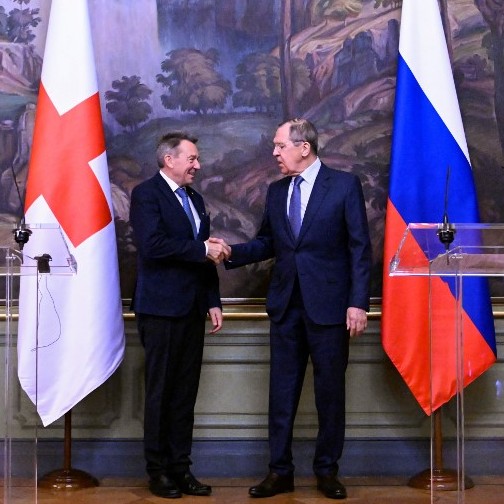Imagine that you wake up in the dead of night to find two men standing in your living room. “Who are you?”
“I’m a burglar,” says the first man.
“I’m with the Red Cross,” says the second.
“Are you helping him rob my house?” you ask, astounded.
“No, no, no,” he replies. “I’m neutral in this burglary.”
“Then what are you doing here?”
“In case he hurts his back carrying out your stuff, I would provide medical assistance.”
“You call that `neutral?'” you ask, dumbfounded.
“Well,” he replies, “If the burglar were to shoot you, I would try to stop the bleeding.”
In their war with Russia, Ukrainians have come to look upon the International Committe of the Red Cross with some suspicion, and have been severely scolded for it.
The Red Cross has been accused of acting on concert with Russia to provide aid and evacuations, to the long-term detriment of Ukrainian civilians. The Red Cross has denied any wrong-doing. They say it’s not their policy to participate in forced evacuations.
Remember, it is not the policy of the Russian army to commit war crimes. Restating a policy in the face of an accusation can only sound creepy.
It is not clear what choice people who are starving and brutalised have when a bus finally shows up, so `forced’ as a term loses its credibility in a denial. What the ICRC has conspicuously not done is deny acting as a front-end to forced evacuations.
The main issue that must press on Ukrainians’ minds is the toxic environment inside Russia, which is illustrated by Russian propaganda, and the mistreatment of Ukrainian civilians by Russian soldiers. To an outside observer, evacuating civilians to the very country that is bent on destroying them is a non-starter. If you were to rescue Uyghurs from a concentration camp in Xinjiang, would you evacuate them to China? Regardless of what actually happens to them, would you be willing to take the responsibility for sending them there?
So, what is actually happening to Ukrainian refugees? The refugee camps in Russian-controlled territory are more rightly called filtration camps, and by some inmates as concentration camps. There is plenty of reason to believe that forced deportations are taking place. Ironically, a report has surfaced of a Red Cross volunteer being forcibly deported and heavily beaten. Furthermore, there are reports that Ukrainians are being sent to Siberia. There are reports of Ukrainian children being sent 6000 km to the Pacific coast, where they are forced to learn Russian. This is consistent with a long-standing practice of sending Ukrainian refugees to remote and under-populated regions, with no means of return.
The Red Cross has been seeking to open an office in Rostov, Russia. Does the ICRC really think that Russia would invite the Red Cross to interfere with their plans? What shall the Red Cross be permitted to do in Russia, other than feeding its victims and preparing them for further transport?
In summary, there are legitimate reasons for Ukrainians to be concerned. By reprimanding those who voice those concerns, the ICRC is doing anything but build trust. The stern and unsympathetic tone of its public announcements serve only to strengthen suspicions that its primary loyalty is to itself.

